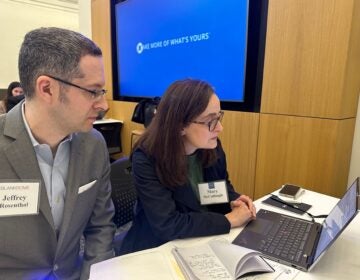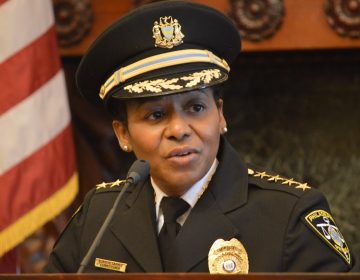New PBS documentary makes the case that people in prison deserve college access
A new documentary by Lynn Novick, "College Behind Bars," premieres on PBS Nov. 25. It depicts hope in a dark place.
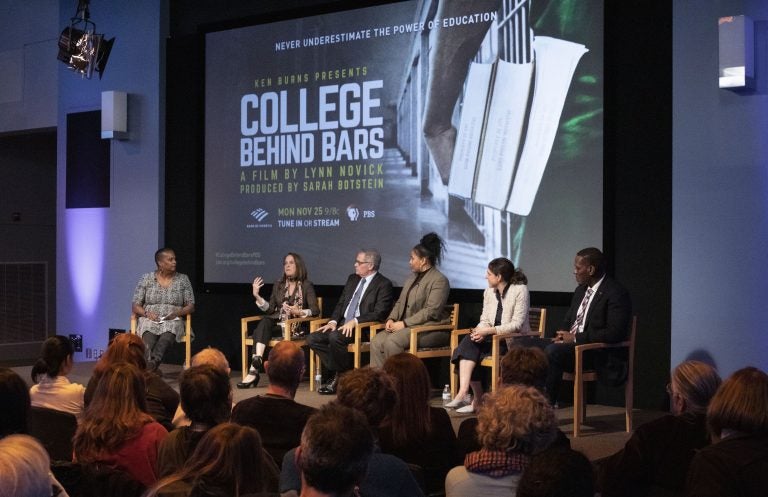
WHYY’s Annette John-Hall moderates a panel after a screening of "College Behind Bars." Panelists pictured, (from left) Lynn Novick, Philadelphia District Attorney Larry Krasner, Shawnta Montgomery, Sarah Botstein, and Jule Hall. (Robert Ivins for WHYY)
Jule Hall is one of the lucky ones.
At age 27, the New York City native enrolled in the Bard Prison Initiative (BPI), which gave him access to the liberal arts curriculum taught at Bard College, a private, nonprofit school overlooking the Hudson River.
He graduated from BPI at age 35. Hall was released from prison four years later. Today, he works at the Ford Foundation as a program associate.
Hall, who was formerly incarcerated, is an example of successful reentry. Yet, Hall — and other graduates of BPI, a program in six New York state prisons – are likely to garner resentment.
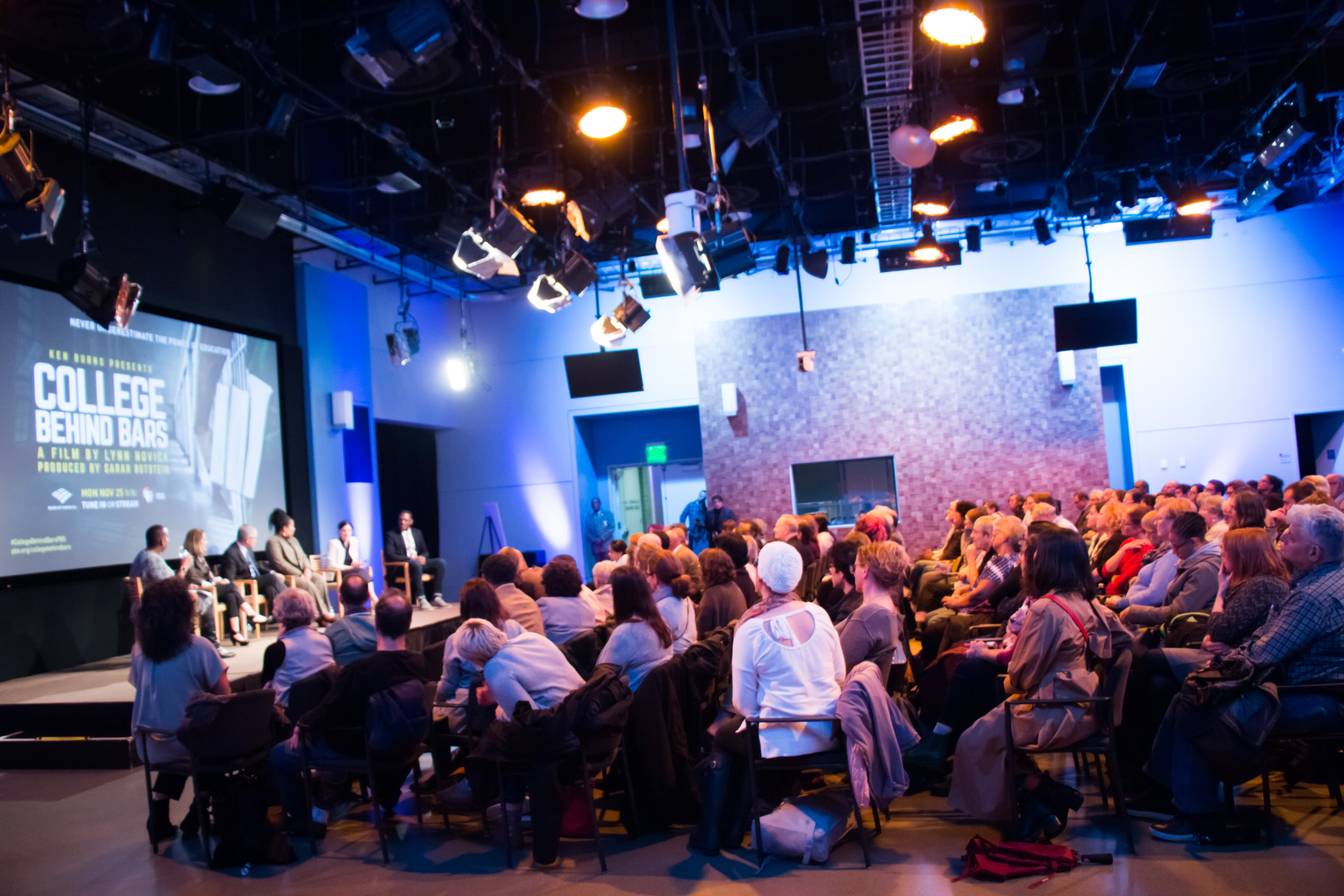
BPI is the subject of a new documentary titled “College Behind Bars”. “When Sarah [Botstein] and I started the project in 2013, the discourse around the issue was a lot more negative,” said Lynn Novick, the film’s director. Thursday, at a WHYY-hosted screening, she shared the stage with producer Botstein, BPI alums Hall and Shawnta Montgomery, and Philadelphia District Attorney Larry Krasner.
“I should tell my kid to break the law, go to jail and get a degree for free,” Novick recalled hearing once from a critic. According to Novick, whether inmates should have access to quality education is the wrong question. Instead, society should ask, “How do we want to deal with the fact that 95% of people who are incarcerated are coming home?” said Novick.
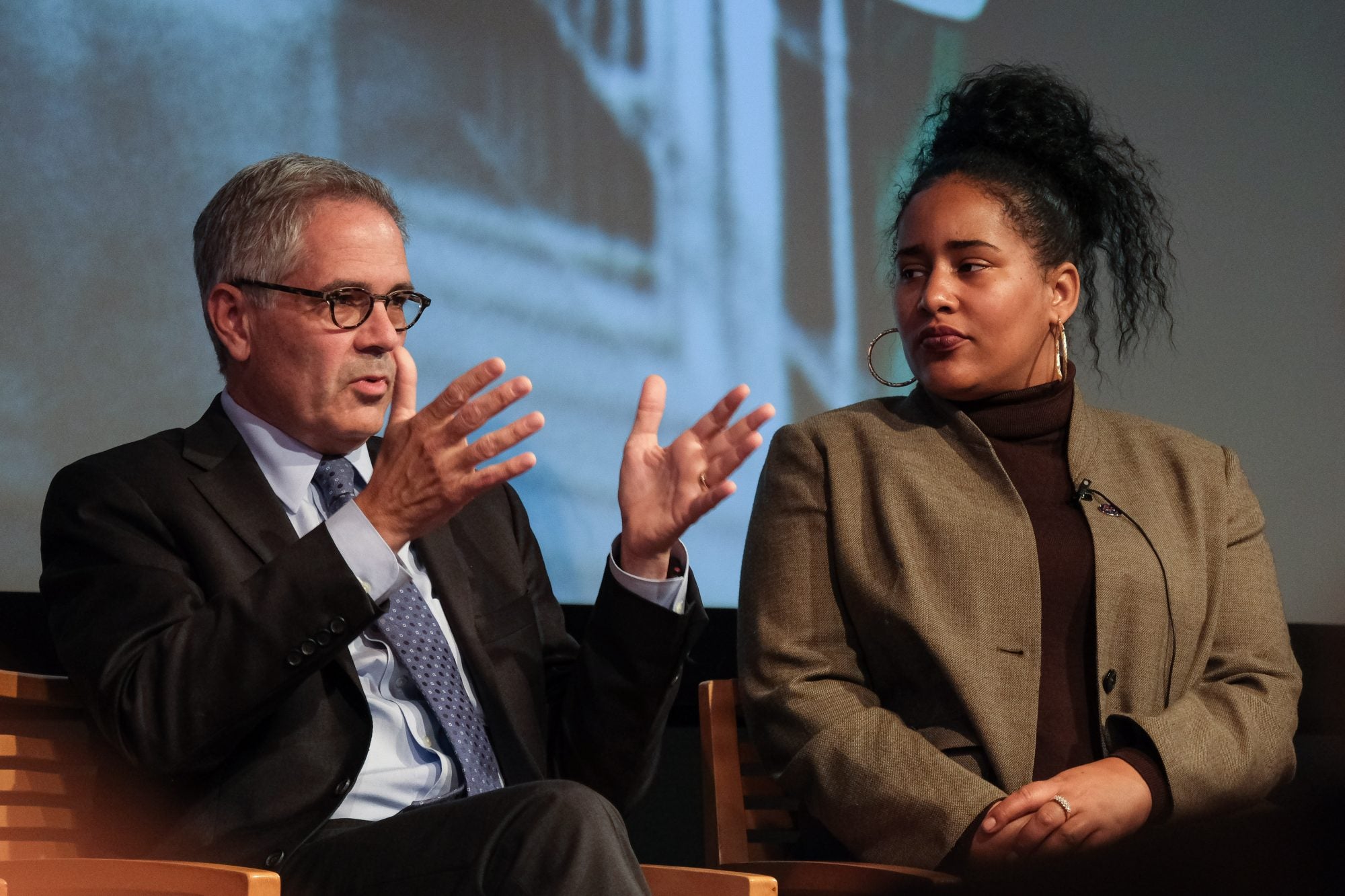
Decades ago, programs like BPI were more common. But in 1994, Congress voted to ban the use of Pell Grants for inmates, a consequence of the tough-on-crime era.
In April of this year, bipartisan legislation was introduced to restore educational opportunities for incarcerated people.
“When we give people in prison an opportunity to earn an education, our communities are safer, taxpayers save money, and we can end the cycle of recidivism,” said U.S. Sen. Brian Schatz, D-Hawaii, a co-sponsor of the bill.
According to Novick, who cited BPI statistics, inmates without education have a 60% chance of returning to prison within five years of getting out. For graduates of the program, the chances of returning to prison are between 2.5% and 4% over 20 years.
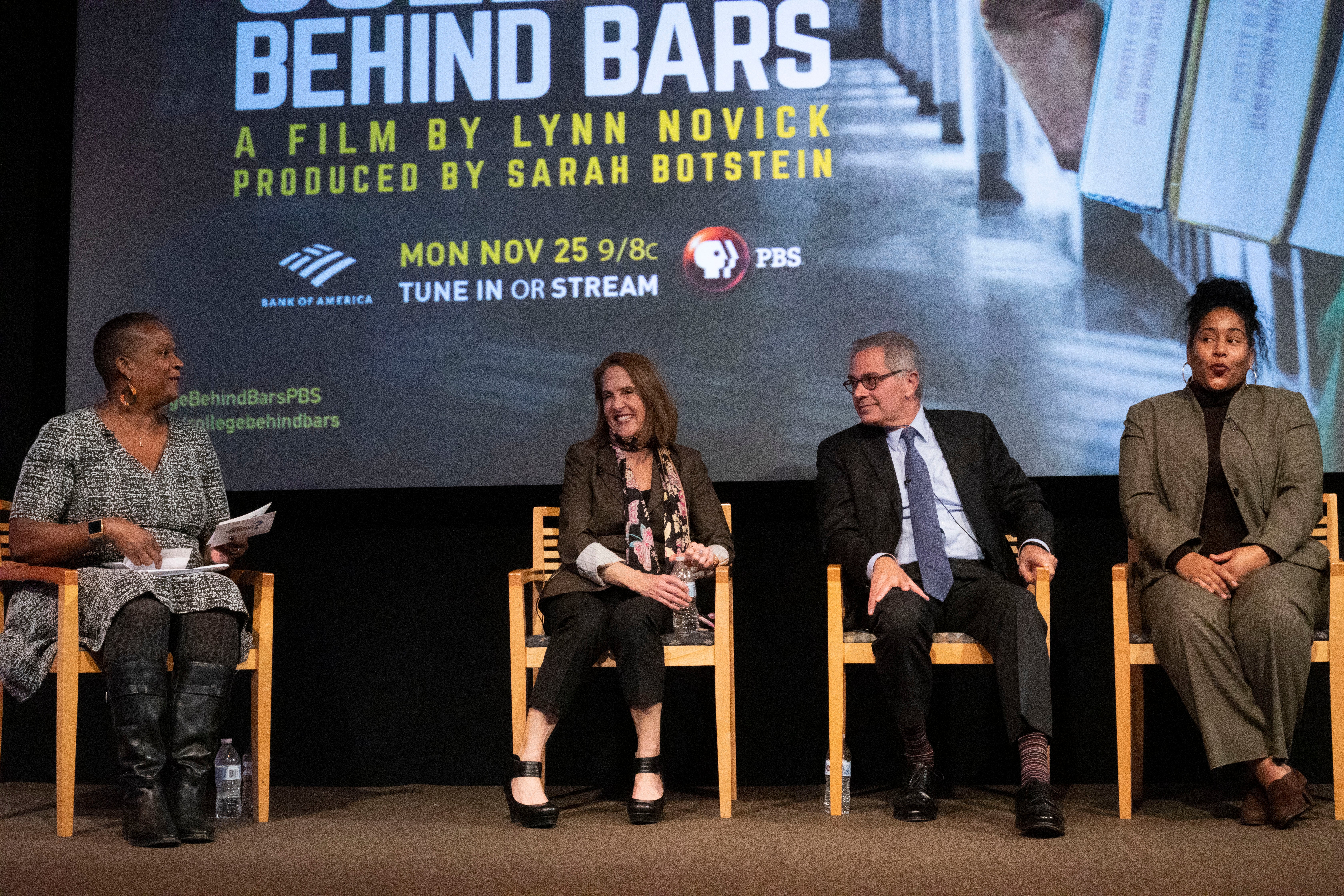
Celebrated for his approach to criminal justice reform, District Attorney Larry Krasner said that while Philadelphia has nothing comparable to BPI, which he characterized as a “high-end, serious college program,” he would love to see a similar model employed throughout the city and state.
Implementation of a program like BPI in Philadelphia wouldn’t typically fall on the desk of the district attorney. But sometimes, Krasner said, you have to “reimagine your desk.”

“Anything my office can do to increase education opportunities so people can reach their potential and not recidivate, I’ll do. It’s good for public safety.”
“College Behind Bars” debuts on PBS Nov. 25 and 26.
WHYY is your source for fact-based, in-depth journalism and information. As a nonprofit organization, we rely on financial support from readers like you. Please give today.


